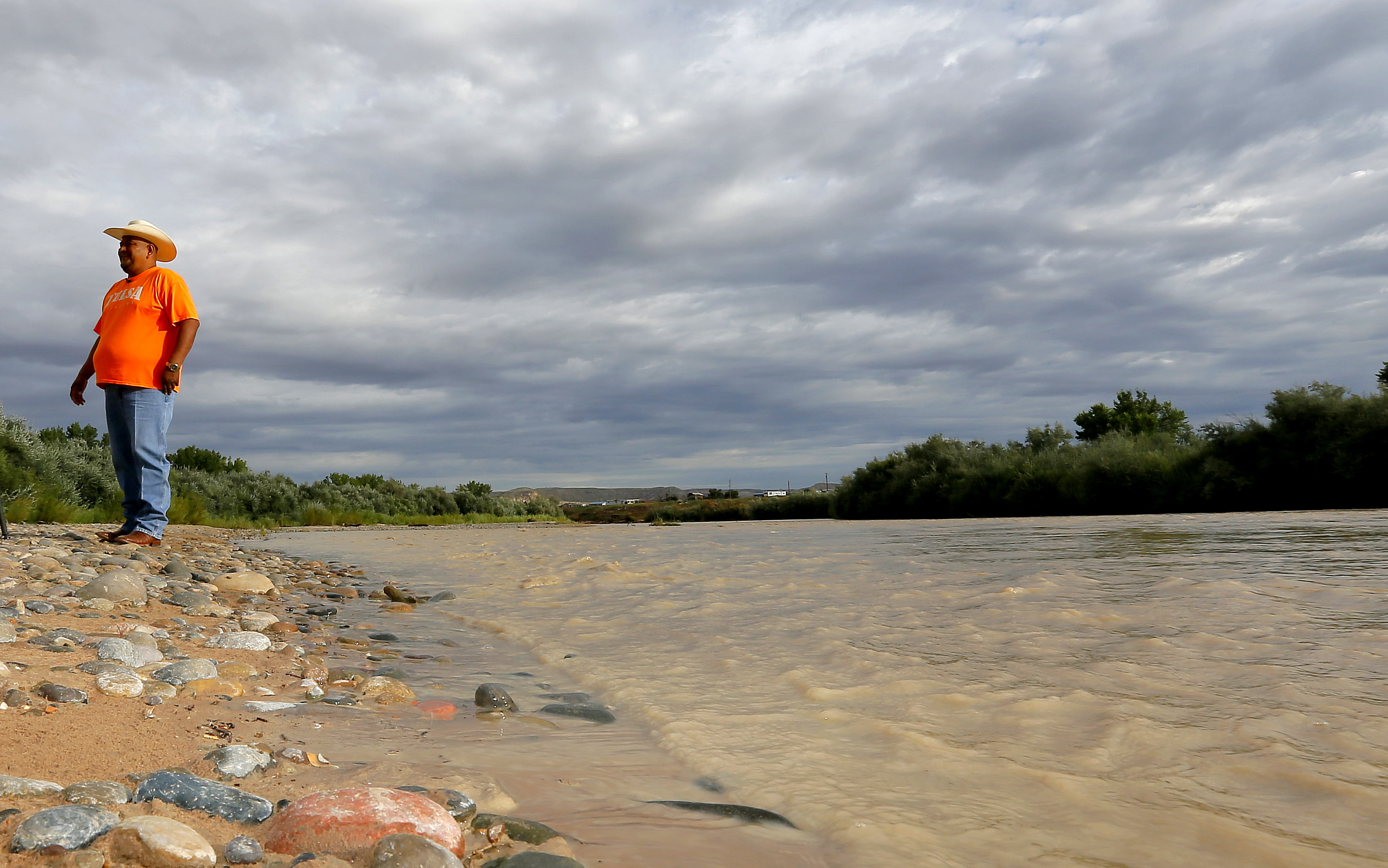The EPA messed up the Animas River. But the real threats are still private industry and the GOP.
It turns out less regulation isn't always better


A free daily email with the biggest news stories of the day – and the best features from TheWeek.com
You are now subscribed
Your newsletter sign-up was successful
The American Southwest suffered a serious environmental crisis last week, after an Environmental Protection Agency effort to clean up old mining waste went disastrously awry, breaching a containment dam and releasing millions of gallons of contaminated water into the Animas River. The city of Durango and San Juan County in Colorado, as well as the Navajo Nation (the largest Native American reservation in the U.S.), have declared a state of emergency, instructing their citizens to stay out of the water and avoid using it for agriculture or drinking for the time being.
It's a giant screw-up by the EPA, which is scrambling to fix the problem. Yet it's one that could not have happened without a monstrous failure of private industry, which means it bears directly on the 2016 presidential race, in which environmental issues will play an important role. The Animas River debacle shows that Republican dogma — which says that pollution is basically no problem and that the EPA should be sharply restricted, if not abolished altogether — is tantamount to a pro-poisoning position.
Mining has long been a fixture of the Mountain West, but it has slowed considerably from the go-go days of the 19th and early 20th centuries. Much of that was hardrock mining of gold and silver, which require very dangerous chemicals and the processing of thousands of tons of ore. Colorado is thus littered with thousands of abandoned mines, and the Animas watershed was no exception, with 400 old mines.
The Week
Escape your echo chamber. Get the facts behind the news, plus analysis from multiple perspectives.

Sign up for The Week's Free Newsletters
From our morning news briefing to a weekly Good News Newsletter, get the best of The Week delivered directly to your inbox.
From our morning news briefing to a weekly Good News Newsletter, get the best of The Week delivered directly to your inbox.
This is a problem, because the mountain mines inevitably fill with water that has leached through the rock, carrying heavy metals and other toxins with it. Cleaning this up is very expensive, and mine companies would obviously prefer not to do it. Early mine investors were notorious for setting up a shell mining company, extracting the material while paying their executive class a fantastic salary, setting up a token cleanup operation (or forgoing it altogether), then declaring bankruptcy and starting all over again.
That's the profitable, job-creating businessman's solution to mining waste: just poison the neighborhood, then skedaddle. Hey presto, someone else's problem!
However, as regulations became more stringent (especially thanks to the Clean Air and Clean Water Acts), things changed. In general, companies (like Anaconda Copper) now work with the EPA and local communities to clean up old sites, often at great expense.
It was one of those old pools of mining waste — around Silverton, Colorado — that the EPA was testing when it accidentally breached a containment dam and released the water. It's been a big problem for years; the EPA and the mine company have pushed for Superfund designation (which would have made more money available for cleanup), while locals have resisted, fearing for their property values.
A free daily email with the biggest news stories of the day – and the best features from TheWeek.com
Again, clearly the EPA is at fault here. But it's also worth noting that this spill is relatively minor compared to previous similar incidents, and that the dam would have likely burst on its own eventually. The question is what to do about it. Left to its own devices, it's quite obvious what private industry would do: nothing. When it comes to environmental externalities, there is simply no alternative to some kind of government policy. And since the waste is already in place, there is no way to set up a Pigovian tax scheme that would deter such waste in the first place. It's the EPA or bust.
Nevertheless, bust is basically the Republican position. At every turn during the Obama years, they have advocated for fewer environmental controls, greater freedom for corporations to pollute the environment, a cut in EPA funding, and attacks on the science that makes the regulations possible. During the 2012 campaign, the EPA's "job killing regulations" became something of a Republican catechism. These days, Sen. Joni Ernst (R-Iowa) wants to abolish the agency altogether, while Sen. James Inhofe (R-Okla.), the chair of the Senate's environment committee, has merely compared it to the Gestapo.
Ironically, new rules stemming from the Clean Water Act have been the subject of particular conservative ire of late. A minor update in a rule interpreting the Clean Water Act sparked furious Republican outrage, as well as a proposal to abolish the rule that would make it dramatically harder to regulate American rivers and streams.
On pollution, the magic of the free market is supposed to be what takes the place of sclerotic EPA bureaucracy. You only have to look back to the Gilded Age to see what a farcical idea that is. The Republican utopia is one where cities suffocate under a cloud of choking smog; where the hearts of American children pump lead-clouded blood; and where drinking water will be sacrificed to pad corporate profits.
Ryan Cooper is a national correspondent at TheWeek.com. His work has appeared in the Washington Monthly, The New Republic, and the Washington Post.
